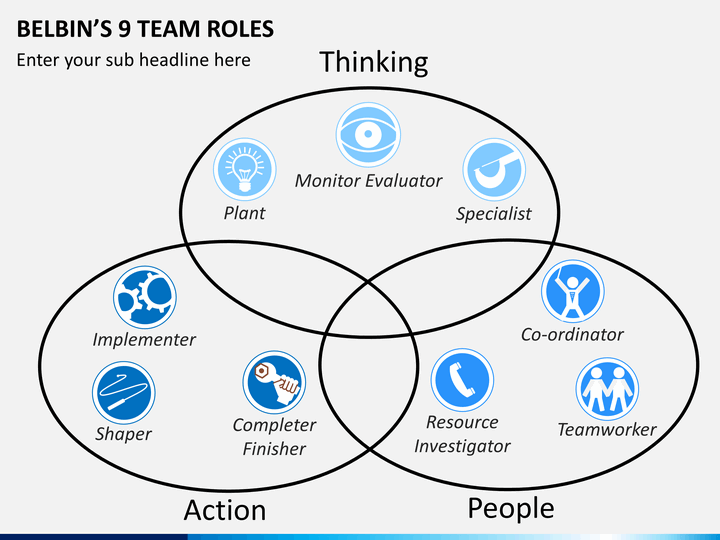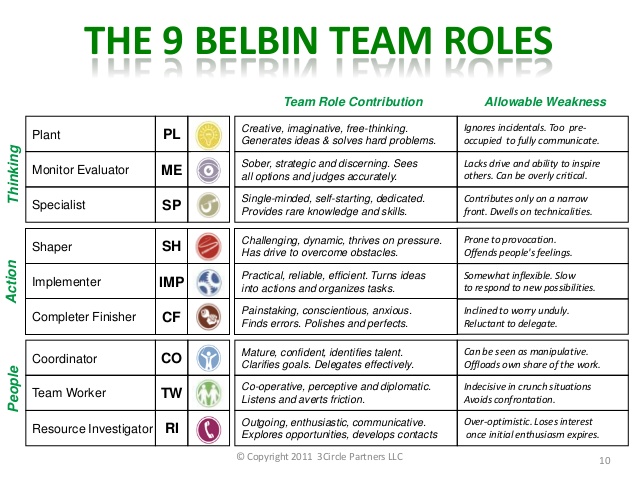We’re all different but it is surprising how many qualities we expect everybody to share when they’re at work. We are not talking about skills, which we can all learn, but styles of working and strengths and weaknesses, which are a part of our personalities. We tend to expect everyone to generate ideas when they’re needed or to be diplomatic in dealing with other divisions and organisations, or to be thorough in dealing with the small but important details of the tasks we ask them to perform.
A team leader needs to assemble a group of individuals who between them add up to a whole - the team - that is greater than the sum of its parts. To do this you need to identify the individual personality types to include in your team to make sure that every useful quality is included somewhere.
Dr Meredith Belbin has spent over twenty years researching the nature, structure and behaviour of teams, and his highly respected work on Team Role Theory provides a clear profile of the basic personality types you need to include in an effective team. Dr Belbin has identified nine team roles, which we will examine more closely.
The first step in building a great team is to bring together the right people to form it. If you recognise the nine team roles described by Dr Belbin and can match your team members to them, you have the foundation for a hugely successful team. It will be able to achieve far more than the combined efforts of all its members working independently would, however talented they are.
If you already have a team that has been appointed, still do the Belbin Team Analysis and see where your strengths and weaknesses are.

Belbin describes a team role as "...a tendency to behave, contribute and interrelate with others in a particular way." There are:
- 3 action-oriented roles - Shaper, Implementer and Completer Finisher;
- 3 people-oriented roles - Coordinator, Team Worker and Resource Investigator, and
- 3 cerebral roles - Plant, Monitor Evaluator and Specialist.
The 9 team roles are summarised in the table below.

Click here to view a video on the description of how the different roles work in teams.
Click on the link/s below to open the resources.
Full summary of the Belbin Team Assessment Sheet
Full summary of the different roles within the Belbin team assessment